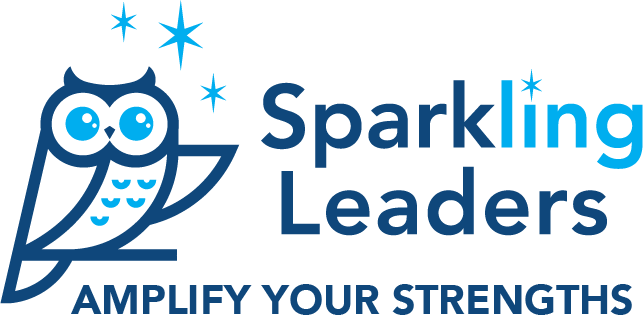Coaching to Maximize Potential Resources
Learning more about coaching can help us maximize our professional and personal potential.
On Tuesday we discussed techniques for better communication including paying attention to the types of questions we ask, making others feel resourceful, and focusing on strengths. We practiced listening for someone’s values during a reflection about what our ideal day would look like 5 to 10 years from now. Listening for what others value can teach us a lot about their priorities and guide how we communicate with them.
Several frameworks were presented that can be used to help others maximize their potential, build relationships, and make it easy for others to help us.
General Coaching Framework:
Set intentions/goals - What would you like to achieve in our discussion?
Explore the current reality - What’s working well for you now?
Generate and evaluate options - What could you do to…
Imagine success and a way forward - What will you need to do to… When will you…
Self-Coaching Framework:
Circumstances - we often can’t change our circumstances.
Thoughts - what are your immediate thoughts, can you change them to be more positive?
Feelings - notice how your thoughts can cause different feelings.
Actions - notice how you take different actions based on your thoughts and feelings.
Results - Recognize the different results from your actions.
Intentional Change Framework:
Ideal Self - Reflect on your purpose, values, and dreams to create a personal vision.
Real Self - Reflect on your strengths and weaknesses plus any assessments to identify who you are now.
Learning Agenda - Create a plan for how you can move from your real self towards your ideal self.
Experiment and Practice - Test ideas/behaviors, Reflect, and Repeat.
Trusting Relationships - Reach out for support and encouragement, know who to call.
RASA Listening Framework:
Receive - Focus all your attention on what the other person is saying.
Appreciate - Nod and show you appreciate them.
Summarize - Re-assert they point by echoing something they said.
Ask - Follow up with questions to receive additional information and clarify what you heard.
Session reflections:
What is one of your favorite memories from the past year where you felt capable?
Imagine waking up 5 to 10 years from now in your ideal life. What does your day look like?
My goal for the month is to be more aware of the types of questions I ask myself and others.
Below is a summary of the session content. Follow the SparklingLeaders Instagram account for additional images and content!
Our next complimentary session will focus on how we can Celebrate This Year and Prepare for the New Year. Join us on Tues, Dec 5 at 11 am PT/2 pm ET! During the one-hour workshop, we will explore our successes, things we want to do more of, things we want to do less of, and accountability plans.
Dec 5 is our final session for the year!
Summary of Nov Session (additional information can be found in the website blog posts) Coaching to Maximize Personal and Professional Potential
Key Takeaways
People are resourceful and capable.
Use questions to help people solve their issues.
We learn more when we are in a positive mindset.
Tips
Coaching is about mining for gold not digging for dirt - focus on the positive.
Know your values and purpose. Think about what your ideal future looks like.
Managing is helping someone do their role, mentoring is using your experience to help someone, and coaching is partnering to facilitate self-awareness and self-directed learning.
Coaching for compliance is about improving specific performance by focusing on deficits, whereas, Coaching for compassion is about partnering to help someone explore their potential.
People are resourceful and capable. We can help them feel that way through the questions we ask.
Remember emotions are contagious. Good leaders are aware of how their emotions affect others.
Train your brain to pause and choose learning questions over judging questions.
Write down your personal board of directors and how each member can support you.
To reflect on:
What makes you feel supported?
What makes you feel like someone is just digging for dirt instead of trying to help you?
When have others made you feel resourceful and capable?
What do you do to help others feel resourceful and capable?
What types of questions are you asked throughout the day?
What types of questions do you ask others throughout the day?
Additional Resources
Helping People Change: Coaching with Compassion for Lifelong Learning and Growth by Richard Boyatzis, Melvin L. Smith, and Ellen Van Oosten (Sep 2019)
The Coaching Habit: Say Less, Ask More & Change the Way You Lead Forever by Michael Bungay Stanier (Feb 2016)
Trillion Dollar Coach: The Leadership Playbook of Silicon Valley's Bill Campbell by Eric Schmidt, Jonathan Rosenberg, and Alan Eagle (Apr 2019)
Change Your Questions, Change Your Life, 4th Edition: 12 Powerful Tools for Leadership, Coaching, and Results by Marilee Adams Ph.D. (Aug 2022)
Personality Isn't Permanent: Break Free from Self-Limiting Beliefs and Rewrite Your Story by Benjamin Hardy (Jun 2020)
Becoming a Coach: The Essential ICF Guide 1st ed. by Jonathan Passmore and Tracy Sinclair (Nov 2020)
Co-Active Coaching, Fourth Edition: The proven framework for transformative conversations at work and in life by Karen Kimsey-House, Henry Kimsey-House, Phillip Sandhal, and Laura Whitworth (Jul 2018)
Self Coaching 101 by Brooke Castillo (Nov 2008)
How You Learn Is How You Live: Using Nine Ways of Learning to Transform Your Life by Kay Peterson and David A. Kolb (Apr 2017)
Questions Are the Answer: A Breakthrough Approach to Your Most Vexing Problems at Work and in Life by Hal Gregersen (Nov 2018)

